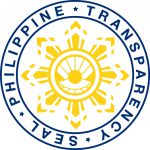Written by: Alyssa Villa & Sheena Alcala
A total of 80 LGUs from the municipalities (60), cities (15) and provinces (5) from regions CAR, I, III and VII participated in the Philippine National Volunteer Service Coordinating Agency (PNVSCA) and the United States Peace Corps (USPC) Philippines’ training titled, “Training on Mainstreaming Volunteerism with the Local Government Units (LGUs)” in various provinces from August 08 – September 08, 2022.
This capacity-building program for LGUs is part of the effort in providing an enabling and conducive environment for impactful volunteer engagement at the local levels, as well as to enhance their capacities in managing a cohesive volunteer program. It also aims to capacitate the designated Volunteerism Focal Persons (VFPs) and other LGU staff on mainstreaming volunteerism in their policies, programs, projects, and activities.
The training consisted of three batches with a total of 128 participants. The 1st Batch consisted of two sessions conducted in Dagupan City on August 08-10 participated by 21 representatives from different LGUs of Ilocos Sur and La Union province and on August 11-13 attended by 34 representatives from Pangasinan and Zambales. The 2nd batch was held in Baguio City on August 22-24 joined by 26 representatives from the provinces of Bataan, Benguet, Nueva Ecija, Pampanga, and Tarlac. For the last leg/3rd batch, the training was conducted in Cebu City on September 06-08 participated by 47 delegates from different LGUs in Bohol, Negros Oriental and Cebu.
For the participants to have a good grasp on the basics of volunteerism, the training started with the paradigms and perspectives on volunteerism. PNVSCA highlighted the key concepts and the importance of volunteerism to one’s self and to the society as well as to better understand and appreciate the role of government as prescribed by RA 9418 or the Volunteering Act of 2007. This was followed by the participants’ assessment of how volunteering connects to their respective LGUs “big picture” which is their current vision, mission, and core values that help promote volunteerism and how it can be integrated in their development plans. The participants also dig deeper in identifying the gaps, issues, and challenges that they encounter which obstruct or delay the mainstreaming of volunteerism in their respective LGUs.
The succeeding day of the training encompasses topics that capacitate the participants to identify strategies that will address the issues and challenges that impede them to facilitate volunteer engagement. Moreover, a session on the establishment of local volunteering structure and mechanisms was facilitated to guide the LGUs in developing mechanisms to create a more conducive and enabling environment for volunteering.
Participants were also taught to identify possible/available resources and sources of funding to support volunteer engagement, appreciate the importance of establishing strategic partnerships, and gain knowledge on partnership development. The monitoring, reporting, and evaluation was also discussed to enable participants understand M&E and its link to achievement of goals and objectives of the organization; determine mechanisms on how to report the volunteering accomplishments in the local development plans; and
Identify appropriate M&E tools and approaches in plan & volunteer monitoring.
The training ended with the LGUs action planning to mainstreaming volunteerism by setting-up the volunteering infrastructure and in their respective localities.
The training was also supported by the International Volunteer Service Organizations (IVSOs), specifically the Australian Volunteer Program (AVP); France Volontaires (FV); Korea International Cooperation Agency (KOICA); Global Initiative for Exchange and Development Inc. (GIED); and Voluntary Service Overseas (VSO) Philippines served as resource persons and shared how LGUs can tap their organizations for international volunteer assistance.
The Covid 19 pandemic has shown that volunteerism is alive among Filipinos with the impressive and innovative responses of different individuals and groups in addressing the needs of the communities in various areas nationwide. Thus, it is important to sustain the fervor for volunteering as the country arises from the social and economic aftermath of the pandemic, with the LGUs playing an important role as they orchestrate the development efforts in their areas of jurisdiction.
###
The authors are currently the VSO II and VSO I of the Program Coordination, Monitoring and Evaluation Division (PCMED), Philippine National Volunteer Service Coordinating Agency.
Visit PNVSCA website (www.pnvsca.gov.ph) and PNVSCA Facebook (facebook.com/PNVSCA) for other stories and information on volunteering.








